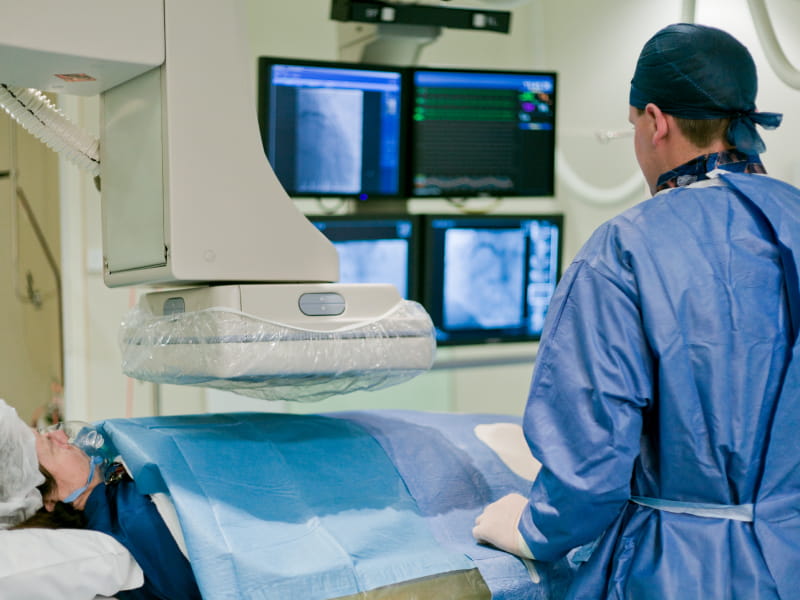Artery-clearing procedure could help even the oldest heart attack patients
By American Heart Association News

More people in their late 70s and 80s who have heart attacks are being treated with a procedure that is helping them survive, a new analysis says.
This artery-clearing procedure is called percutaneous coronary intervention, or PCI, and involves inserting a catheter with a deflated balloon on its tip into a narrowed heart artery. The balloon is inflated, widening the narrowed area, and a stent is inserted.
In younger adults who have a heart attack, PCI is "safe, feasible and improves overall survival and well-being," study author Dr. Abdulla A. Damluji said in a news release.
But little research has been done on its benefits in older patients, even as the procedure has become more common.
"We are attempting PCI in the very old patient population more and more over time," said Damluji, an assistant professor at Johns Hopkins University School of Medicine and an interventional cardiologist at Sinai Hospital, part of LifeBridge Health in Baltimore. "And even though this is a complex patient population and PCI is an invasive intervention, it appears that the lifesaving benefit is substantial."
Results of the research were published Tuesday in Circulation: Cardiovascular Interventions.
Damluji and colleagues studied medical records of nearly 470,000 older patients admitted to U.S. hospitals with a first heart attack from 2000 to 2016. They grouped patients ages 75 to 79 as "young-old," 80 to 84 as "middle-old" and 85 and older as "old-old."
The researchers found that PCI use among 85-and-older first-time heart attack patients increased sharply, from 10% in 2000 to 25% in 2016. At the same time, the death rate for these patients fell, from 17% in 2000 to 11% in 2016.
Among the 75- to 79-year-olds who had the procedure, there was a 53% reduction in overall death compared with the group who did not have the procedure. The reduction was 49% among those 80 to 84 and 42% among people 85 and older.
That means for every 1,000 cases, lives were saved for 49 young-olds, 53 middle-olds and 54 old-olds.
Adults 75 and older are a fast-growing age group, expected to make up 11.5 percent of the U.S. population by 2050. But because they tend to have more complex medical needs, they are kept out of clinical trials for new therapies, Damluji said.
"In order to have a sound conclusion about the effectiveness of PCI in this population," Damluji said, "future clinical trials should enroll older adults even if they have complexities such as frailty, multiple chronic conditions, cognitive dysfunction and multiple medications."
If you have questions or comments about this story, please email [email protected].




